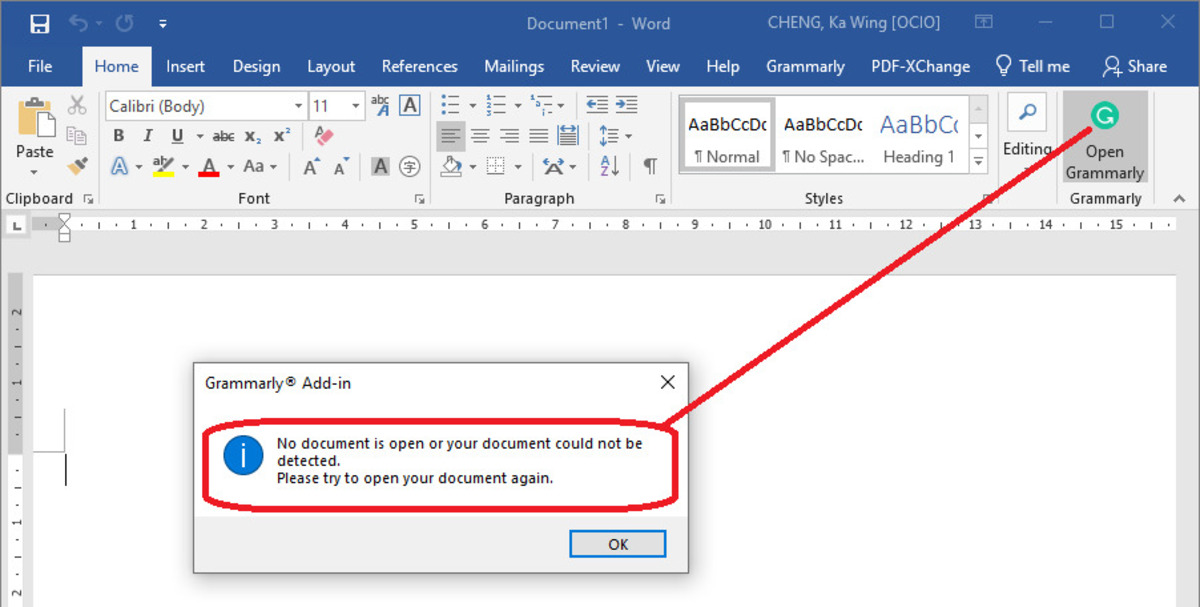Introduction
Safari, Apple's widely used web browser, is known for its sleek interface, robust security features, and seamless integration with Apple devices. However, some users may have encountered a perplexing prompt when using Safari: "Safari would like to access your contacts." This seemingly innocuous request can trigger a range of emotions, from confusion to concern. Why does Safari need access to your contacts, and should you grant it permission?
In this article, we will delve into the intricacies of Safari's access to contacts, shedding light on the reasons behind this request and addressing any privacy concerns it may raise. Additionally, we will explore how users can manage Safari's access to contacts, empowering them to make informed decisions about their privacy and security while using the browser.
So, if you've ever wondered about Safari's interest in your contacts and how it impacts your online experience, join us as we unravel the mysteries behind this seemingly straightforward request. Let's embark on a journey to understand Safari's access to contacts and equip ourselves with the knowledge to navigate this aspect of our digital lives with confidence.
Understanding Safari's Access to Contacts
When Safari requests access to your contacts, it may seem perplexing at first. However, there are legitimate reasons behind this seemingly unusual request. Safari's access to contacts is often tied to its ability to streamline user experiences and enhance convenience. By gaining access to your contacts, Safari can facilitate various functionalities that aim to improve your browsing experience.
One of the primary reasons Safari requests access to contacts is to enable features such as autofill and smart suggestions. By analyzing your contacts, Safari can suggest relevant information when filling out forms or making online transactions. This can save time and effort, especially when entering repetitive details such as addresses and contact information.
Moreover, Safari's access to contacts may also be linked to its integration with other Apple services and applications. For instance, if you use iCloud or other Apple services, Safari's access to contacts can facilitate seamless synchronization and sharing of information across your devices. This integration aims to provide a cohesive and interconnected user experience within the Apple ecosystem.
Additionally, Safari's access to contacts can be leveraged for social sharing and communication purposes. When sharing web content or interacting with social media platforms, Safari may utilize contact information to streamline the sharing process, making it easier for users to connect with their contacts and share content seamlessly.
It's important to note that Safari's access to contacts is governed by strict privacy protocols and user consent. Apple places a strong emphasis on user privacy and data protection, ensuring that any access to contacts is handled with the utmost sensitivity and security measures in place.
By understanding the rationale behind Safari's access to contacts, users can gain insights into the browser's functionalities and the potential benefits it offers. While the request for access to contacts may initially raise eyebrows, it is rooted in the pursuit of enhancing user experiences and streamlining interactions within the Apple ecosystem.
As we continue to explore the intricacies of Safari's access to contacts, it becomes evident that this feature is designed to harmonize various aspects of the browsing experience, from convenience-driven functionalities to seamless integration with Apple's ecosystem. By comprehending the underlying motivations behind this request, users can make informed decisions regarding their privacy and security while using Safari.
Privacy Concerns
While Safari's access to contacts serves functional purposes, it also raises valid privacy concerns that users should carefully consider. Granting a web browser access to personal contacts inherently involves the sharing of sensitive information, prompting individuals to evaluate the potential implications and risks associated with this practice.
One of the primary privacy concerns stems from the possibility of unauthorized access to contact information. By allowing Safari to access contacts, users are essentially entrusting the browser with a repository of personal and often confidential details, including names, phone numbers, email addresses, and other pertinent information. This raises apprehensions about the security of such data and the potential for unauthorized third-party access.
Furthermore, the interconnected nature of digital platforms introduces the risk of data proliferation. When Safari gains access to contacts, there is a possibility that this information could be inadvertently shared or synchronized with other services or applications within the Apple ecosystem. While synchronization can offer convenience, it also amplifies the need for stringent data protection measures to prevent unintended data exposure or misuse.
Moreover, the prospect of targeted advertising and data monetization cannot be overlooked. Access to contacts provides insights into users' social circles and communication networks, which can be leveraged for targeted advertising purposes. This raises concerns about the potential exploitation of contact data for commercial gain, potentially leading to intrusive marketing practices and privacy infringements.
Additionally, the evolving landscape of data privacy regulations and the increasing prevalence of data breaches underscore the importance of safeguarding contact information. Users are rightfully concerned about the potential vulnerabilities that may arise from granting a web browser access to their contacts, especially in light of the growing emphasis on data protection and privacy rights.
As users navigate the digital realm, the preservation of privacy and the responsible handling of personal data are paramount. The request for access to contacts by Safari prompts individuals to weigh the convenience it offers against the potential privacy implications, compelling them to make informed decisions aligned with their privacy preferences and risk tolerance.
By acknowledging and addressing these privacy concerns, users can approach the decision of granting Safari access to contacts with heightened awareness and discernment. This heightened awareness empowers individuals to assert control over their digital footprint and make privacy-conscious choices that align with their values and concerns.
As we delve into the realm of privacy concerns associated with Safari's access to contacts, it becomes evident that the intersection of convenience and privacy necessitates a thoughtful and informed approach. By recognizing the potential implications and risks, users can navigate this aspect of their digital interactions with vigilance and a proactive stance toward safeguarding their privacy.
How to Manage Safari's Access to Contacts
Managing Safari's access to contacts empowers users to exert control over their privacy and data sharing preferences while utilizing the browser. Whether users seek to limit access to contacts or revoke previously granted permissions, Safari provides intuitive methods to manage this aspect of its functionality.
Review and Modify Permissions
To manage Safari's access to contacts, users can initiate the process by navigating to the device's settings and locating the privacy settings specific to Safari. Within the privacy settings, users can review the permissions granted to Safari, including access to contacts. This comprehensive overview allows users to assess and modify the permissions in alignment with their privacy preferences.
Adjusting Contact Access
Upon accessing the privacy settings for Safari, users can specifically adjust the contact access permissions. This granular control enables individuals to toggle the contact access on or off, providing a straightforward method to manage Safari's interaction with their contact information. By adjusting the contact access settings, users can tailor Safari's functionalities to align with their privacy and data sharing preferences.
Consider Alternative Solutions
For users who are apprehensive about granting Safari access to their contacts, exploring alternative solutions can offer peace of mind without compromising convenience. Utilizing third-party password managers or form autofill applications can provide similar convenience without necessitating the sharing of contact information with the browser. By considering alternative solutions, users can maintain a heightened level of control over their personal data while navigating the digital landscape.
Regular Privacy Audits
Incorporating regular privacy audits into one's digital routine can serve as a proactive approach to managing Safari's access to contacts. By periodically reviewing and adjusting the permissions granted to Safari, users can ensure that their privacy settings remain aligned with their evolving preferences and concerns. This ongoing vigilance empowers individuals to adapt to changing privacy dynamics and assert control over their digital interactions.
Empowerment Through Education
Educating oneself about the intricacies of privacy settings and data sharing mechanisms within Safari can be instrumental in managing contact access effectively. By staying informed about the implications of granting access to contacts and the functionalities it enables, users can make informed decisions that resonate with their privacy values. This empowerment through education fosters a proactive and discerning approach to managing Safari's access to contacts.
By leveraging these strategies, users can navigate Safari's access to contacts with a heightened sense of control and awareness. This proactive stance empowers individuals to align their digital interactions with their privacy preferences, fostering a harmonious balance between convenience and data protection within the Safari browsing experience.
Conclusion
In conclusion, Safari's request for access to contacts, while initially perplexing, is rooted in the pursuit of enhancing user experiences and streamlining interactions within the Apple ecosystem. By understanding the underlying motivations behind this request, users can make informed decisions regarding their privacy and security while using Safari.
The interplay between convenience-driven functionalities and privacy considerations underscores the need for a balanced approach to managing Safari's access to contacts. While the browser's ability to leverage contact information for autofill, smart suggestions, and seamless integration with Apple services offers undeniable convenience, it also raises valid privacy concerns. The potential for unauthorized access, data proliferation, targeted advertising, and the evolving landscape of data privacy regulations necessitate a thoughtful and informed approach to managing contact access within Safari.
Empowering users to manage Safari's access to contacts is pivotal in fostering a harmonious balance between convenience and data protection. By reviewing and modifying permissions, adjusting contact access settings, considering alternative solutions, conducting regular privacy audits, and embracing empowerment through education, individuals can navigate Safari's access to contacts with heightened awareness and control.
Ultimately, the decision to grant or restrict Safari's access to contacts rests in the hands of the users, who are empowered to align their digital interactions with their privacy preferences and values. By embracing a proactive and discerning approach to managing contact access within Safari, individuals can navigate the digital landscape with confidence, knowing that their privacy and data sharing preferences are upheld.
As technology continues to evolve and privacy considerations remain at the forefront of digital interactions, the management of Safari's access to contacts serves as a testament to the importance of user empowerment and informed decision-making. By embracing a privacy-conscious approach, users can harness the functionalities of Safari while safeguarding their personal data, thereby fostering a digital environment that prioritizes user privacy and security.
In essence, Safari's access to contacts embodies the delicate balance between convenience and privacy, inviting users to navigate this intersection with vigilance and a proactive stance toward safeguarding their digital footprint. Through informed decision-making and proactive management of contact access, users can embark on a digital journey within Safari that harmonizes the benefits of convenience with the preservation of privacy and data protection.

























